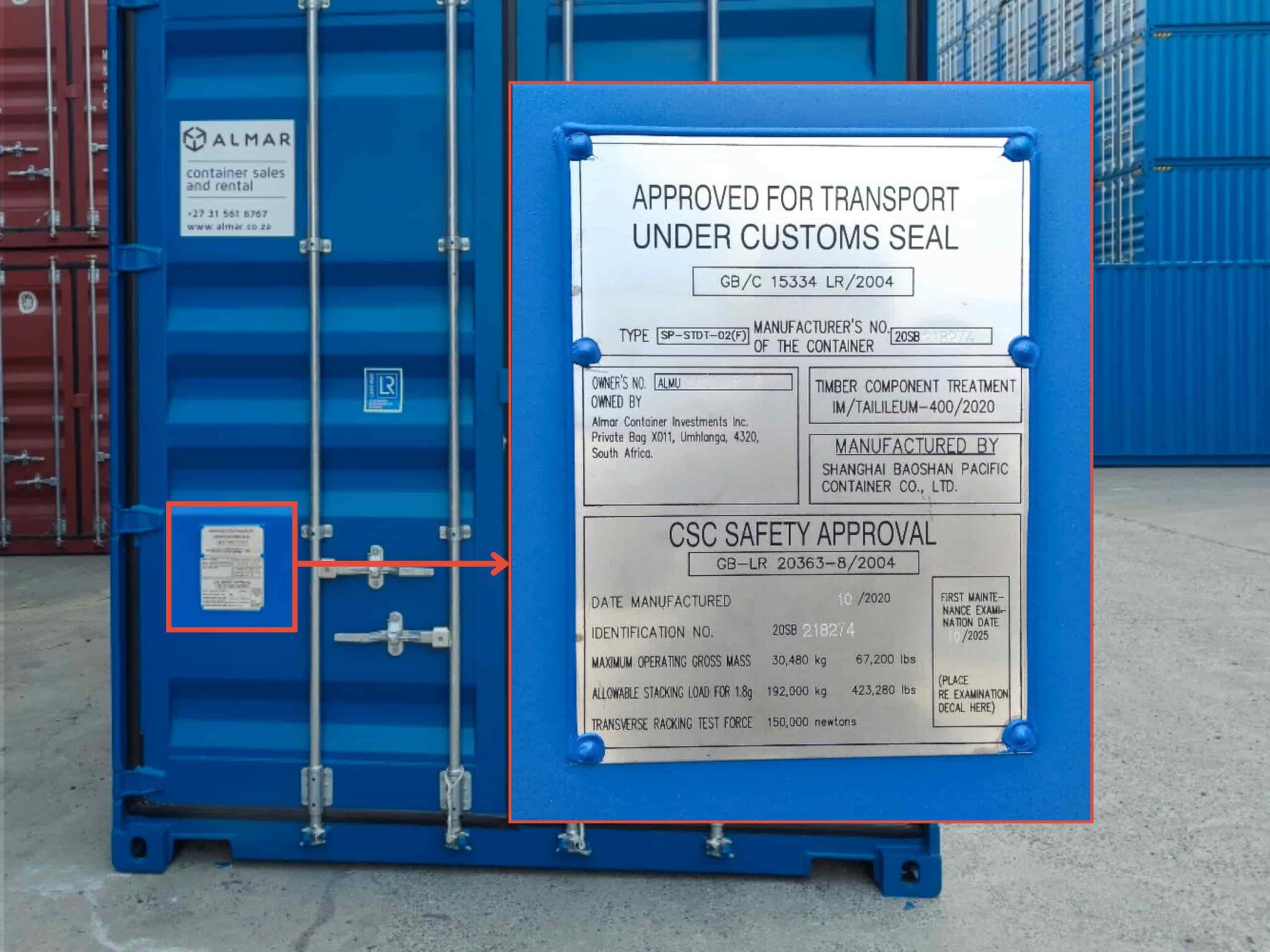If you’ve ever rented, bought, or transported a shipping container in South Africa, you may have noticed a small metal plate fixed to the container’s doors. Often overlooked, this CSC plate holds a lot more importance than its size might suggest. In fact, it’s one of the key things that keeps your cargo - and the people moving it - safe.
A CSC plate is a safety approval plate issued under the International Convention for Safe Containers (CSC). Think of it as your container’s passport and roadworthy certificate rolled into one. It confirms that the container has been inspected, tested, and meets international safety standards.
In South Africa, whether you’re moving goods between Cape Town and Durban or shipping abroad from Port Elizabeth, your container must comply with CSC requirements if it’s going to be used for international transport.

Typically, a new container gets a CSC plate valid for five years. After that, inspections are done every 30 months to ensure the container still meets safety standards. This is especially important for containers in high-use industries like mining, manufacturing, and agriculture - all major sectors here in South Africa.
If you’re buying or leasing a dry container, always take a moment to check the CSC plate. Make sure the dates are valid and that the plate is readable. In a busy port or logistics hub like Durban, something as small as an expired plate could bring your operations to a standstill.
A CSC plate might be just a small piece of metal, but it carries big weight in the world of logistics. It’s your guarantee that your container is safe, compliant and ready to keep your goods protected.
If you’re in South Africa and need advice or supply of CSC-compliant dry containers, our team is here to help you get the right container for the job - safely and efficiently.
Contact us for more information.